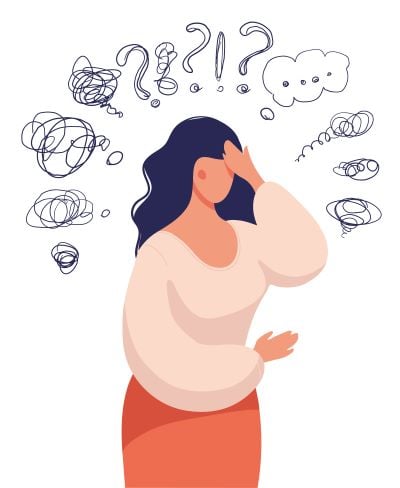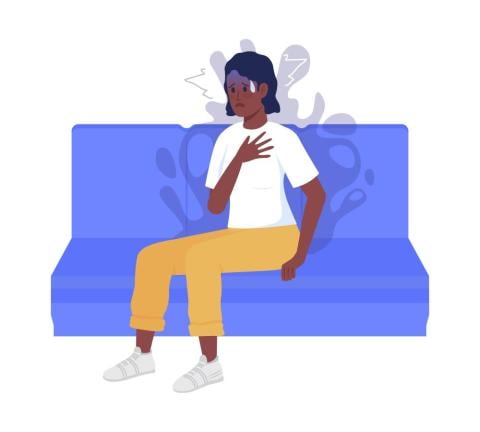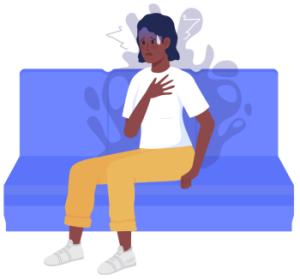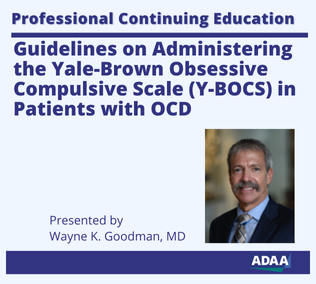The Role of Magical Thinking in OCD
The Role of Magical Thinking in OCD

Have you ever knocked on wood to ward off bad luck? If so, you’ve experienced magical thinking.
What is Magical Thinking?
Magical thinking is the belief that your thoughts or actions can cause real-life consequences, with no direct logical connection between them. Magical thinking most often involves a belief that thoughts or actions can cause or prevent harm, like knocking on wood. You think that you’ll prevent something bad from happening, even though you know there’s no rational connection between knocking on wood and any future danger.
Many superstitions are a form of magical thinking, such as jinxes, lucky rabbit’s feet, or unlucky numbers. Magical thinking is not inherently harmful and is actually a common part of our culture. It can be a way we lighten the mood (yelling jinx for a free soda), represent our beliefs (making a sign of the cross), or share our rituals with others (communal prayer).
The Danger of Magical Thinking
Magical thinking can be a healthy coping tool to provide comfort, optimism, and a sense of control in an unpredictable world. But relying too heavily on magical thinking can cause emotional distress and constrain your relationships and activities. This thinking pattern can become too rigid and extreme, leading to a feeling that arbitrary and illogical rules are taking over your life.
How is Magical Thinking Related to OCD?
People with OCD can have intrusive thoughts that something terrible will happen to themselves or people they care about unless they engage in some specific, unrelated action (a compulsion). If prevented from engaging in a compulsion, they can experience anxiety and a sense of guilt that they did not protect the people or things they care about.
Examples of Magical Thinking OCD
- If I don’t wear this specific shirt, my dad will die
- If I mention any bad outcome, my daughter will get in an accident on her flight
- If I think a racist word, it will affect my behavior and make me act in a racist way
- If I don’t text my friend an even number of times, she will get assaulted
- If I have a negative thought about someone, I’ve cursed them and something bad will happen
- If I don’t lock the door 7 times, someone will break in.
- If I have a blasphemous thought, I am going to hell
Common Compulsions
- Repeating words, thoughts or actions to ward off something negative
- Avoiding “bad” actions such as stepping on cracks or unlucky items such as numbers, colors, dates, words, or sounds
- Engaging in behaviors around “good” numbers, colors, words, or dates, such as crossing a doorway a certain number of times
- Counteracting negative thoughts with positive thoughts or prayers
- Arranging items in a particular order that feels safe or good
- Engaging in specific body movements, such as touching things or turning around until it feels “right”
- Seeking reassurance about thoughts, feelings, and behaviors (i.e. excessive confession)
The Myth of Manifestation and How it Harms OCD Sufferers
Manifestation has become a wildly popular practice. It is described as the act of thinking aspirational thoughts to make them come true. It’s understandable why this practice is so attractive. We all want good things to happen to us.
It is true that focusing your attention on positive vs negative things can shift your frame of mind and learning to be compassionate with yourself can benefit your mental health. However, the presence of negative thoughts themselves cannot directly influence the physical world. We can’t just think things into being. If that were true, horrible things like homelessness, cancer, and natural disasters would not exist.
I would love to have a personal chef. But if I just think about it hard enough, in the right combination of numbers, or at the right times of day, a chef will not magically appear in my home. Telling people that their words, thoughts, or unrelated actions will cause positive or negative outcomes is harmful to those who have been so tortured by intrusive thoughts.
Actions create change. If you want a promotion, a vacation, or a new car, you have to take logical, related actions to make that happen. Just thinking about your desire or engaging in unrelated behaviors such as repeating a lucky phrase is not enough to make it happen.
Challenging Magical Thinking
Let’s practice something together. Every time you see a green object, think that you will win the lottery. Or, on the flip side, say “My best friend will lose their job” out loud. Then, after doing that for a full day, or a week, check in with what truly happened. Did you win the lottery? Is your best friend unemployed?
How Magical Thinking is Reinforced by Compulsions
Compulsions rob you of the ability to find out what would really happen if you face your fear. When you engage in a compulsion and nothing bad happens, you attribute that positive outcome to your compulsion. Your compulsion also lowers your anxiety and increases your sense of control. This reinforces your urge to engage in more compulsions and actually leaves you with an inflated sense of responsibility. The compulsive cycle tricks you into believing it’s your fault if unrelated bad things happen and it’s your responsibility to protect yourself or people around you from harm.
How to Break Free
If you have OCD, work on spotting the presence of magical thinking in your life. Then slowly try to deviate from the rigid rules OCD is demanding you follow. If your intrusive thoughts tell you that you should only wear yellow socks, try wearing white ones for a day. If you think you have to turn the faucet on 3 times, try only doing it twice.
Then pay attention to what happened. Did your fear come true? Were you able to tolerate the anxiety? Start practicing changing up or even completely resisting your rituals over and over again. Notice how it makes you feel, the space it makes in your life, and how your beliefs change. If you’re struggling to implement this yourself, reach out to an OCD specialist who can help you spot the tricky ways magical thinking pops up, and help you undo its power.
This post is presented in collaboration with ADAA's OCD and Related Disorders SIG. Learn more about the SIG.





















